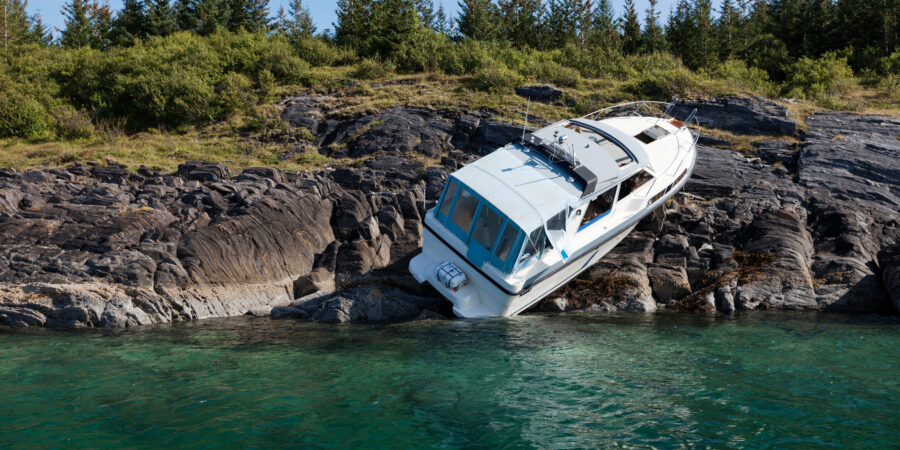What to do After a Boating Accident
There are over 5,000 boating accidents nationwide per year, many happening during the summer months, vacation time and holiday season. These may occur more frequently in areas with more lakes and coastlines, such as Michigan, California and Florida, but boating in general carries a significant risk of some type of accident for every excursion.
It’s not surprising that alcohol is involved in many of these accidents. In fact, it’s the cause of 18 percent of all fatal watercraft accidents.
Weekend warriors or inexperienced owners who take their watercraft out for less than a dozen times a year, perhaps mainly during the summer vacation season, are at a higher risk for boating accidents.
Other contributing factors to these accidents, fatal or not, include:
- Drug use (other than alcohol)
- Novice operator or reckless driving
- Dangerous waters
- Excessive speed
- Mechanical failure
- Navigation mistakes and running aground
- Failure to follow safety rules/falling overboard
- Blocked vision
Although the ambiance aboard a watercraft is typically one of festivity, alcohol and other drugs don’t safely mix with it. The operator and at least one other person capable of driving the vehicle safely should remain sober for that particular excursion.
Watercraft Insurance
Insurance is not a requirement in most areas, unless the craft is financed or docked in a private or state marina. However, as with land vehicles, an accident can occur at any time. While most states don’t require watercraft owners to have liability insurance, it’s foolish not to. Insurance protects both a valuable investment and personal finances.
Many people think they don’t need this kind of insurance because the watercraft is covered by their homeowner’s insurance. While it’s true that a homeowner’s policy may help to cover minor damage to a smaller craft stored on your property, it’s worthless once you’re on the water.
In particular, a powerboat should always be insured. Not only do most water accidents involve powerboats and cabin cruisers, but these vehicles are likely the most expensive to repair and replace.
Watercraft insurance covers many other types of vessels, though. This includes:
- Fishing
- Sailboats
- Pontoon
- Jet skis and water runners
This insurance works much like auto insurance. You choose a level of protection for liability, which covers anyone injured aboard your watercraft and also protection for damage and theft. This insurance is subject to a deductible, just like a car. For example, if your watercraft collision policy has a $500 deductible, your insurance will pay for any covered claim over $500.
You can also purchase UB insurance, which stands for uninsured (or underinsured) boater. This will pay for your medical expenses if you’re injured by a watercraft operator with no insurance or inadequate insurance.
Boating insurance typically will not cover:
- Normal wear and tear
- Damages from marine creatures
- Insect damage
- Mold damage
- Weathering and deterioration
Watercraft insurance helps to protect the vessel owner from what could potentially be a serious monetary award or settlement should an injured passenger sue them.
Safety Precautions for Watercraft
The best way to deal with an accident is to prevent it from happening. While this is not always possible, there are a few things you can do to reduce the likelihood of a watercraft accident:
- Make sure your craft is sound and mechanically well-maintained. Check the mast, sail and riggings and be sure to seal any leaks. Make sure all equipment is in good working order. Carry navigation lights, distress signals and fire extinguishers.
- Know your craft’s loading limits and do not exceed them. Bring only necessary gear and provisions.
- Every person on board should have a lifejacket. Children, the elderly and weak swimmers should wear one at all times.
- Never operate a watercraft while intoxicated or under the influence of any psychoactive substance. This includes prescription drugs legally furnished to you and medical and recreational marijuana products.
- Know the rules of the waterways and how to avoid a collision. For example, if two watercraft are heading towards each other and a crash looks imminent, both operators should steer hard to starboard (right) to avoid an accident. Big ships and very large watercraft have limited ability to steer, maneuver and slow down. Stay way clear of these.
Steps to Take After a Boating Accident
You may have as much as a one in two chance of being injured during a watercraft accident. In addition to the injury itself, there is also the hazard of the water. Overboard watercraft accidents are often fatal.
This is due to the added danger of drowning, hypothermia, being swept away, injury incurred during the fall or from the watercraft itself, such as from the propeller, and attack by marine creatures.
- If a watercraft accident occurs, your first priority is to call for emergency medical treatment for those injured. This is a good idea in all but the most minor of accidents. Injuries may not be apparent at first to the untrained eye. You may think you are not injured, but you could be wrong. Let a medical first responder make that determination.
If you’re injured during a watercraft accident, it’s best to seek a separate medical evaluation afterwards, whether you received one on board or not. Not all injuries show up right away. If you wait too long to seek treatment for what could be a serious injury not apparent right away, you may have more problems getting compensation for your injuries later from the watercraft owner’s insurance company.
- Make sure everyone is as safe as possible until help arrives. Assist those who may have been thrown into the water. If you cannot pull them onto the vessel, ensure that they have flotation devices to keep them easily afloat until emergency help arrives. Use pressure to control bleeding. Unconscious persons should be placed on their side.
- Call the Coast Guard and tell them what happened. For an injured party, this is an important step. The reported generated by the Coast Guard may help you prove liability and help you get compensation later on. For the watercraft owner, this report may help to establish that their liability is limited or even absent altogether. It can work both ways depending upon the circumstances.
- Gather your own evidence. This means talking to other passengers who were also involved and who are eyewitnesses. Ask them for their version of the events, whether they’re injured and what their contact information is. Use your phone to take plenty of photographs of the scene. Focus on safety gear that may not be present (but should be) or evidence of the operator’s negligence, such as empty alcohol containers strewn about the deck.
The information you gather now may determine later whether you have a strong case or not. You can’t have too much evidence. Just get whatever you can and let your personal injury attorney decide later which is legally relevant and which is not. That’s part of their job.
- Contact a personal injury attorney. Concentrate on lawyers with extensive past experience in successfully handling boating accidents. Here is where your best chance for a good outcome lies. The right legal presentation can make or break your case and make the difference between a high monetary award, a mediocre one, a low one or even none at all.
JT Legal Group
If you’ve been injured in a boating accident in California, we can help you navigate the daunting, complex court system and secure the best monetary award for your case.
We invite you to contact us online or call us at (888) 529-3111. An experienced, compassionate attorney will review your case as part of a confidential, free consultation. If we take your case, we work on a contingency basis. This means that you owe no money upfront. We take our fees from the settlement or award if we win your case. If we don’t win, you owe nothing.
You should be aware that time constraints may apply. This means that you can lose your right to sue if you wait too long. A personal injury legal case is always best filed as soon as possible.
Don’t let someone else’s negligence threaten your health, your future and your family’s future. Call JT Legal Group today.


